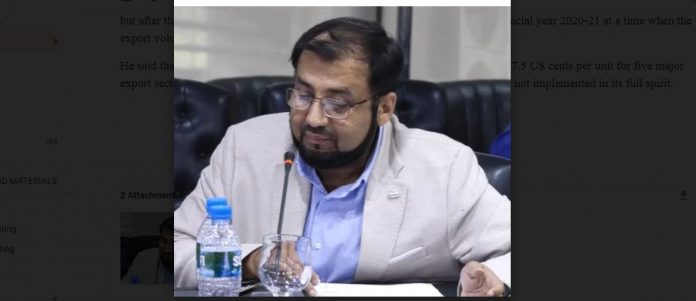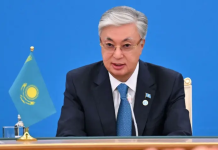The value-added textile industry has rejected the frequent increase in the energy prices of gas and electricity, as the move continues to make Pakistan’s products uncompetitive in the international market.
The PRGMEA newly-elected regional chief Adeeb Iqbal observed that amid worsening export volumes and low industrial growth, the hike in electricity rates to 9 US cents per kWh for the export sector is really surprising and if it is not withdrawn, it would prove to be dangerous for country’s garment industry. He also stressed the need for early approval of new Textile Policy 2020-25, as it would be beneficial for the major export sectors. He said that PM Imran Khan has already accorded approval to this policy in terms of policy directives on production and diversification of exports. He added that the approval of textile policy is the only way to ensure more investment in this sector as a huge investment is in the pipeline but is awaiting the last accord of textile policy.
Adeeb Iqbal said that growth of value-added textile sector is must to steer the industry of worse situation and contribute to the exports of the country. He observed that the garment industry should be allowed to grow while enjoying the right to avail opportunities against the competitors.
He observed that country has not been able to achieve its maximum export potential and product diversification owing to limited access to raw materials. He pointed out that the procedures for temporary import schemes should be simplified so that exporters could be able to achieve price competitiveness and product diversification.
Pakistan’s exports have been struggling for a long time and to counter that he called for continuation and consistency in long-term policies.
Opposing the government recent decision of raising power tariff for the export sector by 1.5 cents amidst downfall of exports, he sought regionally competitive energy tariffs for export industries to capture the global market.
“The export-oriented industry has now been forced to pay a cost of Rs15 per unit, which is more than the double of the electricity rates in India. This will pull the exporters out of the international market by the regional competitors who are able to avail better prices for energy.”
He said that the electricity charges in Bangladesh and India are about 7-9 cents per kWh while in China, which is Pakistan’s major trading partner, the electricity charges are less than 9 cents per kWh. As a result, Pakistan has been losing the international markets to China, India and even Bangladesh. Although the oil prices were linked with the international prices, the benefit of decline in oil prices had not been passed on to the consumers for quite a long time, he added.
“PRGMEA appreciates the government be provide power to the export-oriented sectors for two months at 7.5 US cents but after that power being supplied at 9 US cents per kWh for the rest of the financial year 2020-21 at a time when the export volumes continue to suppress,” he said.
He said that in Jan 2019 the government had announced an all-inclusive tariff of 7.5 US cents per unit for five major export sectors to enhance Pakistan’s export competitiveness but the decision was not implemented in its full spirit.

















